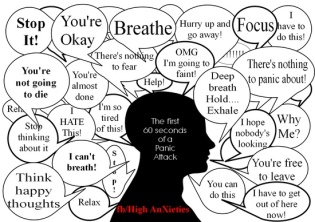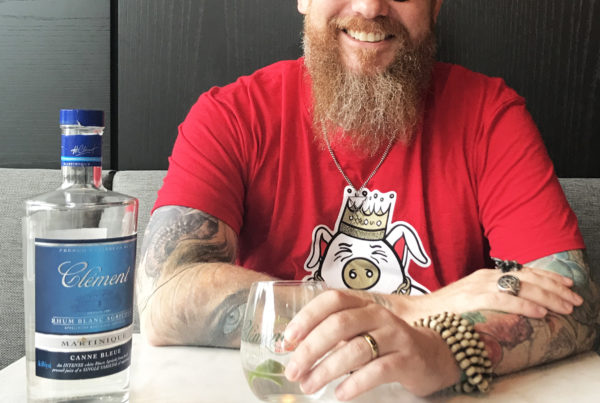
This blog entry was originally published on Ed’s (now-defunct) blog on June 10th, 2013. It is being reposted here since it was referenced several times in our “The Toll of Ownership” episode with Jake Koeneman from Central State Brewing. Without further ado…
Fear and Loathing in a New Restaurant
I don’t mean to sound presumptuous about the quality of my writing by re-purposing a title from Hunter S. Thompson. It was the most apt description of my mental state over the last week. We opened a small restaurant named Rook last Wednesday, and to say that it’s been a rough week would be a major understatement. Opening any kind of business is nerve-wracking, but I think restaurants are particularly full of anxiety for a number of reasons.
The industry’s workers are very nomadic due to the stressful nature of the work involved. Why work hard in a Restaurant A when Restaurant B pays the same and doesn’t get as busy or require you to put in as much effort? If the industry isn’t a career choice for the future, then staying on for the long-haul isn’t really that important. And opening staff is even more shaky.
In restaurants, it’s normal for many members of the opening crew to quit within the first few weeks due to lack of hours, too many hours, too much stress, not what they expected, etc. There is no real way to combat it. If you want to make sure the restaurant is functioning flawlessly, then you need to hire more people than you really need to make sure that you’re covered should anyone quit. But this precipitates the aforementioned “lack of hours” – and thus it becomes a self-fulfilling prophecy.
If you hire exactly the number of people you need then you leave yourself open to major operational issues when people don’t show up to work, or lack of work ethic (which is definitely in high demand for kitchen jobs). I’ve always been in this camp. I’d rather not set my employees up for a tough financial situation due to a lack of hours. This can strain the budget a bit, but I feel the responsibility to the people that work with me so I try not to cut their hours. And then? Inevitably someone doesn’t show up for the shift. Or maybe two people don’t. Such was the case these last 5 days.
So what happens when someone doesn’t show up? Or two people? When the crew is only 12 people, you’ve lost 1/6th of the entire team. And the doors open in 15 minutes. And none of the food is prepared because the no-shows were the prep cooks. Well, you do it yourself. You try to be in four places at once. And the panic attacks start. And then you try to be in five places at once. And then they get worse. And then you see the line forming in the front. And your brain kicks into survival mode: Do what is necessary to get through this and do your best to make sure that your patrons can’t see you falling on your face. Over and over again.
But they do. In the digital age, word spreads quickly. More people come. And you fall on your face again – worse this time. I did this repeatedly during the past five days. When two cooks didn’t show up, I took the baton and ran with it – or rather, stumbled with it. And people notice those things. What I’d envisioned and trained the staff for was a fast-casual restaurant with fresh, locally sourced (when possible) ingredients. And what we ended up with was a place that couldn’t send food out of the kitchen quicker than 25 minutes (when we were busy).
So, what to do? You call everyone you know that cooks and might need a job. Old co-workers, friends of friends, family members, cousins of the employees that stuck it out. You call everyone you know that knows how to hold a knife, then you move on to the ones that don’t…and hope for the best. But the anxiety doesn’t stop. Not for months.
I’ve done this before, so I should have known what to expect. But with a small crew, losing one person takes a big toll on everyone else. As an owner, you’re always worried about how it’s affecting the service and perception of your very costly and very risky new venture. What started as a cool idea becomes the tool by which you’re judged. Hundreds of times.
Don’t care for Chinese spices? That’s our fault for using them. Traditionally prepared Chinese Char Sui? “Too fatty.” The marinated steak – “can’t you leave the marinade off?” Vegetarian? The tofu is “too soft”, “awesome”, “spiced too heavily”, “not spiced heavily enough.” That last one is the most perplexing for me. I can’t seem to get a consensus from my vegetarian patrons to try to make everyone happy. Maybe I’ll never be able to make everyone happy.
But judged you shall be — starting with the first plate of food you serve. It’s the nature of the business.
And perhaps that’s the most frustrating part. Anyone that’s opened a restaurant (or any other business for that matter) can tell you that you don’t really get things figured out for six months, and you won’t find your stride until you’ve got a year under your belt. If these issues still exist at that time, then there are problems inherent in the business plan/model. But most people DON’T realize that and are under the impression that everything should be perfect from day one. Ideally, yes. In reality, never. But you only get one chance to make a first impression.
So you lay awake at night, unable to sleep – even after the 15-hour work shift – scrutinizing every detail of the day. You look at the clock. Damn. You have to be awake in four hours and the worry is keeping your body from relaxing. I usually drift off just a few hours before I have to wake up and start again. But the sleep isn’t restful, so it doesn’t matter anyway. I dream about horrible things during these opening phases. I dream of my pets dying, being tortured, or anything unpleasant that my mind can come up with. Harboring any regrets or feelings of guilt? Be sure that those will pop up in your dreams, too, should you ever go through this process.
But maybe I’m wrong. Maybe it’s easier for some people. Most people have thicker skin than I do. I put on a good front but, behind the tattoos, funky hair, and long beard is a sensitive person. I take everything personally. Of course, that’s a HORRIBLE idea in any kind of business. But when you’ve worked so hard and so long on something, it’s hard to disconnect your “real life” from “work life”. As an owner of a small business, they’re really one in the same.
At the restaurant, we’re always expected to be smiling and in the best of spirits – regardless of the kind of day we’ve had. I always remind my wife that no one cares about the woes of a small-business owner because most people are under the impression that, as an owner, you’re raking in cash hand-over-fist. Only other small business owners know the truth. When I opened my first restaurant five years ago we took a delivery the day before we opened. The owner of a small food distributor in Indianapolis dropped off a few cases of dry goods for me, personally, in his own car. He’s an old friend, so I joked to him, “C’mon man… you’re the owner! You’re driving a beat up old El Camino?”
He laughed, “Just wait. You’ll see.”
And he was right. It’s a jungle out there. And I usually feel like the prey. It’s hard to step back and think to yourself, “things will improve. They always do.” I’m more likely to overestimate my importance in everyone’s day-to-day lives. When we make a mistake in the restaurant, or have delays, we beat ourselves up pretty hard. A negative review clings to your brain like a parasite. And too many mistakes feels like a tailspin from which you’ll never recover (Goose!). But it ends. And all the customers eat and go on with their day. And we hope that they forgive and forget, but we over-criticize and over-scrutinize ourselves regardless.
David Chang is notoriously pessimistic about himself and his restaurants. I often think about that during those crushing anxiety attacks (though I’m no more like David Chang than I am Hunter S. Thompson). You feel that the world just crashed down because that sandwich that should have taken 8 minutes to make took 20 minutes. “We are fucked,” you think. “No one will ever come back after that.” You hear the Big Lebowski shouting at you, “The goddamn plane has crashed into the mountain!” And you start to imagine what going out of business is going to look like. And it’s only been five days.
With luck, perseverance, and the support of the community, you can bounce back. But my train of thought hasn’t reached that point yet. I’m still in the panic/pessimistic phase that I usually go through.
It’s the beginning of a long road. These last five days have been painful. I’m hoping this blog post serves as a means of catharsis. I just have to punch through these first few months. There isn’t much else to say at the moment. Plus I have some old co-workers, friends of friends, family members, and cousins of employees to call. And then the real work begins – becoming what we envisioned.
This blog post brought to you by the magic of Xanax.





[…] Fear and Loathing in a New Restaurant […]